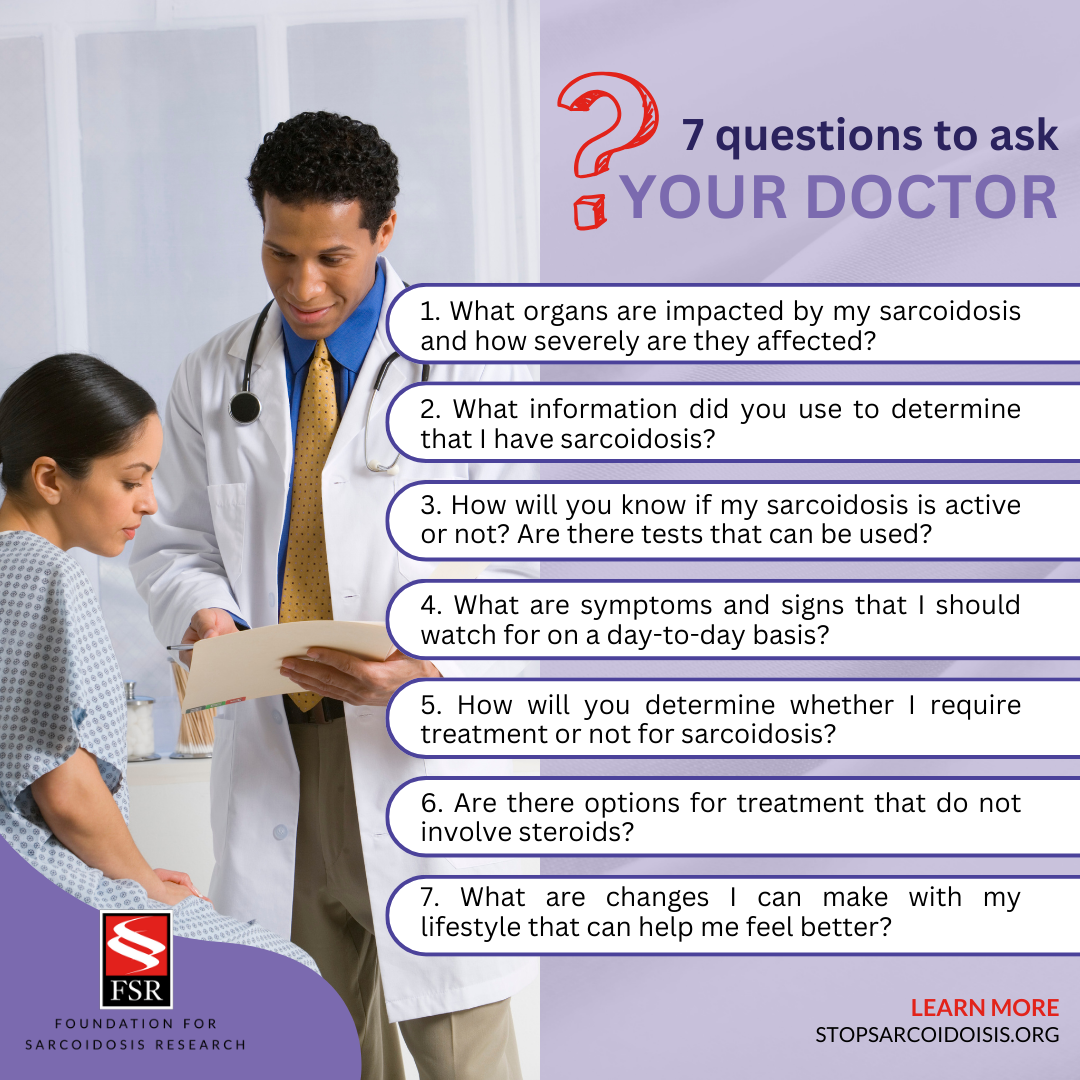Open communication with your healthcare provider is essential for effectively managing sarcoidosis.
By maintaining open and honest dialogue, you ensure that your symptoms are accurately monitored, your treatment plan is tailored to your specific needs, and any changes in your condition are promptly addressed. This collaborative approach empowers you to make informed decisions about your health and enhances your ability to manage the disease.
Resources
My Sarcoidosis Health Plan Toolkit
FSR is proud to have partnered with the Susan Pearlstine Sarcoidosis Center of Excellence at the Medical University of South Carolina (MUSC) in order to provide a tool they developed to help patients manage their sarcoidosis care and improve their communication with their clinicians.
Use and print this toolkit to keep track of:
- Care team
- Healthcare goals
- Appointments
- Symptoms
- Medications
- Notes & more
The toolkit is available for download with no form required. Clinicians must obtain permission from FSR to use and distribute the toolkit to their patients.
Questions to ask your doctor if you are newly diagnosed with sarcoidosis
If you have recently been diagnosed with sarcoidosis, you may not know what to ask your healthcare specialist, especially in the moment. We recommend jotting down a few notes ahead of your next appointment so you can stay focused on your most important inquiries. Top questions to ask your provider, as recommended by Dr. Divya Patel, Director of UF Health’s Sarcoidosis Program, a Global Sarcoidosis Clinic Alliance Founding Member, include:
1. What organs are impacted by my sarcoidosis and how severely are they affected?
2. What information did you use to determine that I have sarcoidosis?
3. How will you know if my sarcoidosis is active or not? Are there tests that can be used?
4. What are symptoms and signs that I should watch for on a day-to-day basis?
5. How will you determine whether I require treatment or not for sarcoidosis?
6. Are there options for treatment that do not involve steroids?
7. What are changes I can make with my lifestyle that can help me feel better?

Watch the Webinar: Effective Communication with Your Healthcare Team
FSR Patient Advocate and Nurse Practitioner, Amy Cobb, leads this discussion on communicating effectively with your providers through connection and preparedness. Amy reviews useful tools for being your own advocate during your office visit and making treatment decisions with your providers by communicating your values and life goals.

